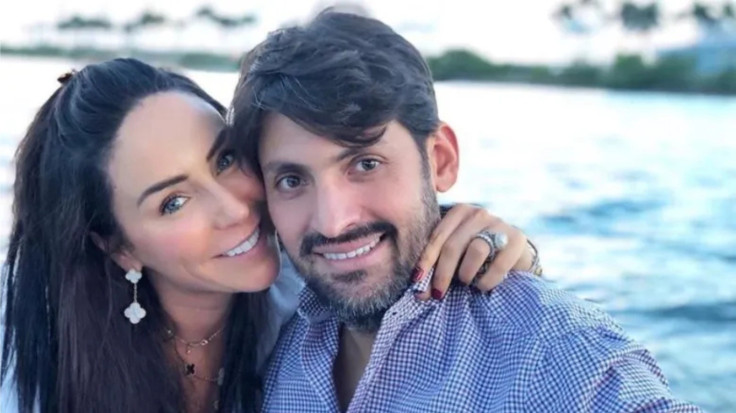
MIAMI — The man once known in Mexico as the "El Chapo of tax fraud" did not move tons of cocaine or wage bloody battles against rivals. Instead, Víctor Manuel Álvarez Puga allegedly built a billion-peso empire through fake invoices, phantom companies, and money-laundering schemes that reached the highest levels of government. His story, now unfolding in a U.S. immigration courtroom, has all the elements of a modern thriller: luxury, power, corruption, and the kind of downfall that links Mexico City's political elite to Miami's real-estate market.
Álvarez Puga, 48, was arrested by Immigration and Customs Enforcement agents (ICE) in Florida after years on the run. The charges he faces in Mexico accuse him of creating an elaborate network of shell companies that issued false invoices for services never provided, helping businesses and public officials divert public money. Investigators believe his system moved the equivalent of hundreds of millions of dollars through corporate fronts, real-estate deals, and offshore accounts.
The nickname "El Chapo of tax fraud" emerged because of the scale and sophistication of his alleged operations. Like Joaquín Guzmán, the infamous drug lord who ran the Sinaloa cartel, Álvarez Puga is accused of building an empire that relied on secrecy, loyal intermediaries, and the complicity of officials at multiple levels. But instead of drug tunnels, prosecutors say his channels were accounting systems and bank wires.
In Mexico, the so-called "facturera" phenomenon, companies that exist only to issue false invoices, became one of the largest sources of tax evasion and public-fund theft in the country's history. Authorities say Álvarez Puga was at its center. According to Infobae, his company allegedly signed simulated contracts with several government departments, including the Ministry of the Interior during the administration of former president Enrique Peña Nieto. Money intended for social programs or prison reforms allegedly ended up in his corporate web.
While Mexico's attorney general's office issued warrants in 2021, Álvarez Puga and his wife, well-known television presenter Inés Gómez Mont, had already vanished from public life. For months, tabloids speculated about their whereabouts. The answer came later from federal agents in the United States: they had been living quietly in Miami, alternating between two properties registered under corporate names.
One of them was a sprawling mansion in Pinecrest, a wealthy suburb south of downtown Miami. Another, even more famous, was a Mediterranean-style house on La Gorce Island once owned by pop legend Cher. Real-estate records show the couple bought it through a company called Casa Mia Pinecrest Corp. for more than six million dollars. Neighbors say luxury cars were a common sight at the property before the arrest.
When ICE agents finally detained Álvarez Puga, it was not on charges of financial crimes but for immigration irregularities. His asylum application reportedly contained false information, prompting the federal agency to take him into custody. The arrest exposed how fugitives accused of large-scale corruption can live undetected in the United States through the same loopholes they allegedly exploit abroad.
For U.S. readers, the case reveals a growing overlap between international financial crimes and domestic enforcement. The fact that a man accused of draining Mexico's public funds ended up seeking refuge through American real-estate deals illustrates how money laundering crosses borders with ease. It also shows how difficult it is for either country to hold white-collar fugitives accountable when their assets and identities are spread across jurisdictions.
Analysts in Mexico have described Álvarez Puga as a symbol of a generation of businessmen who enriched themselves through the misuse of government contracts. They call him the public face of a larger network that involved accountants, politicians, and corporate executives. His wife, once one of Mexico's most popular television hosts, has denied involvement and reportedly moved with their children to a country with no extradition treaty.
Behind the headlines lies a broader truth: corruption in Mexico is no longer limited to cash-stuffed envelopes or hidden narco-deals. The new era of organized crime often looks like legitimate business. It uses accountants instead of armed guards, spreadsheets instead of assault rifles, and offshore accounts instead of drug routes. In that sense, calling Álvarez Puga "the new El Chapo" is not hyperbole but a reflection of how power and money evolve.
Today, the man once known for throwing lavish parties and buying celebrity homes sits in a U.S. detention facility waiting for a November hearing that will decide his fate. Mexico wants him extradited to face charges of organized crime, embezzlement, and money laundering. His lawyers, led by a prominent Miami immigration firm, argue that he faces political persecution and deserves protection.
Whether he is extradited or not, Álvarez Puga's case already stands as a cautionary tale of how privilege and corruption can move effortlessly between nations. The mansion that once belonged to Cher now sits empty, a monument to a lifestyle built on deception and illusion. For Miami, it is another chapter in the city's long history as a magnet for both glamour and scandal. And for Mexico, it is a reminder that its most powerful criminals no longer need cartels to build empires, they just need the right paperwork.
© 2025 Latin Times. All rights reserved. Do not reproduce without permission.










